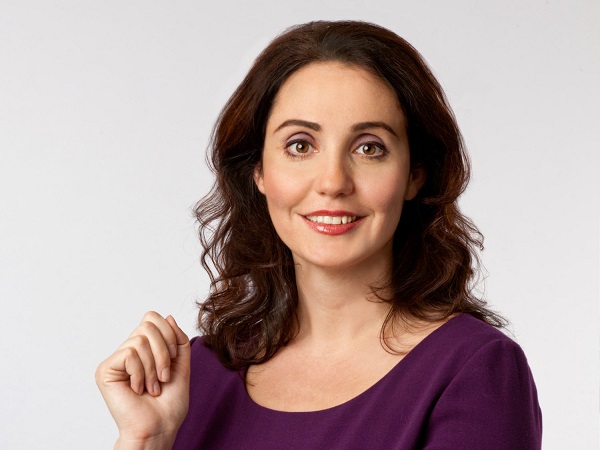As a founder and co-managing partner of Glasswing Ventures, an early-stage venture capital firm, Rudina Seseri is helping to build the next generation of artificial intelligence technology companies. In addition to investing, Seseri helps her portfolio companies with strategic direction and growth strategy, building boards and executive teams, strategic partnerships and lead generation. She has first-hand knowledge of the challenges and rewards of running a company and can guide other founders through their own entrepreneurial endeavors.
“As a venture capitalist investing in startups for over a decade now, one gets quite a bit of exposure to the twists and turns in the journey of building a company. Yet, that’s nothing compared to the experience of having cofounded and built a startup of one’s own, as in the case of Glasswing Ventures,” she says, “I now have a much deeper ability to relate to the joys and tribulations that founders and entrepreneurs face along the way in a company’s journey to growth.” We spoke about her career path and advice.

What inspired you to start Glasswing Ventures? What was your career path?
I graduated from Wellesley College and worked for three years as an investment banking analyst at Credit Suisse in the technology group. It was there and then that I realized the technology industry was where I wanted to be. During the time, I was earning my MBA at Harvard Business School, and I met Rick Grinnell, who later became my cofounder at Glasswing Ventures. In fact, it was [Grinnell] who recruited me away from my role in corporate development at Microsoft to work in venture capital. We have had a long-standing successful venture capital career and business partnership. 10 years later, it culminated in the formation of Glasswing Ventures, an early-stage venture capital firm dedicated to building the next generation of artificial intelligence technology companies targeting the connected world and the security of the ecosystem.
What has been the biggest challenge and, on the flip side, the biggest reward of starting Glasswing Ventures?
What’s really been rewarding is the strengthening of the partnerships I have with [Grinnell] and our third partner, Sarah Fay, through all the highs and lows and leaning on each other to help our firm grow. Building our team, working alongside passionate founders and CEOs, meeting with exciting AI startups, young entrepreneurs and women entrepreneurs and being able to guide them during this disruptive time in our history is an incredible opportunity – the rewards far, far outweigh the challenges.
What advice do you have for other women who hope to start their own businesses?
My mom provided me with a remarkable example to follow. When my dad passed away, I was just a year old. She raised my sister and me single handedly while running a 3,600-person company. She guided us by her conviction and the belief that we can achieve anything we set our minds to. This is my advice to any woman who wants to start her own business, and it is the same one I will pass on to my young daughter: Each of us must find our passion and act on that – to pursue those dreams and have a positive impact on the world. This is critical, even more so because as AI becomes more and more of a driving factor in taking on mundane tasks, it will enable us to pursue higher productivity and more creative endeavors.
What are your responsibilities as cofounder and co-managing partner of Glasswing Ventures?
Being at the helm of the firm, my responsibilities are all-encompassing. I lead investments, work on due diligence, develop and maintain relationships with our investors and recruit for our team to helping ensure that everyone on the team is having rewarding experiences and they are learning and taking risks. I also manage the day-to-day tasks of administration and ensuring compliance. My other responsibilities include driving thought leadership in the ecosystem on the impact of AI, judging startup competitions and holding guest lectures at Babson College, Massachusetts Institute of Technology and HBS.
How do you choose what you invest in?
There is a long list of key dynamics and characteristics we look for. Let me highlight two very distinct features we look for in any companies we invest in: the transformational role these companies seek to play in their respective industries (or the industries they are creating) and the exceptional execution ability by the founding and management teams. When it comes to founders, we look for those individuals who build companies, not just products, and are able to grow as their business grows.
What’s the biggest lesson you learned at work, and how did you learn it?
Getting buy-in on the company and board of director’s level is critical in this business. This is important and it’s a good lesson for anyone to learn. You can be the smartest person in the room, but it won’t do you any good – even if you are right – if you can’t get consensus.
What is one thing that you wish you had known when you were starting out your career?
In hindsight, I would have to say not knowing what lay ahead of me was for the best. Not knowing all the risks probably helped as l may have been deterred knowing what I now know. I think it’s a characteristic of many founders of startups, especially younger ones, who have the hunger, passion and drive to take the chances they do. I often refer to it as the ‘value of naiveté.’
What is the best advice you’ve ever received?
For people who are hard performers and have a ‘what’s next’ focus like me, you often forget about the present. I try hard, albeit not always successfully, to take the time to focus on the present and celebrate the now – your family, your team and your achievements. Taking time to be in the present also means having the ability, when necessary, to reflect on things that might also have gone better and execute them better in the future.
What is your business advice for other young professional women?
Don’t be afraid to take risks. And if you do not speak up, no one else will speak up for you.
































